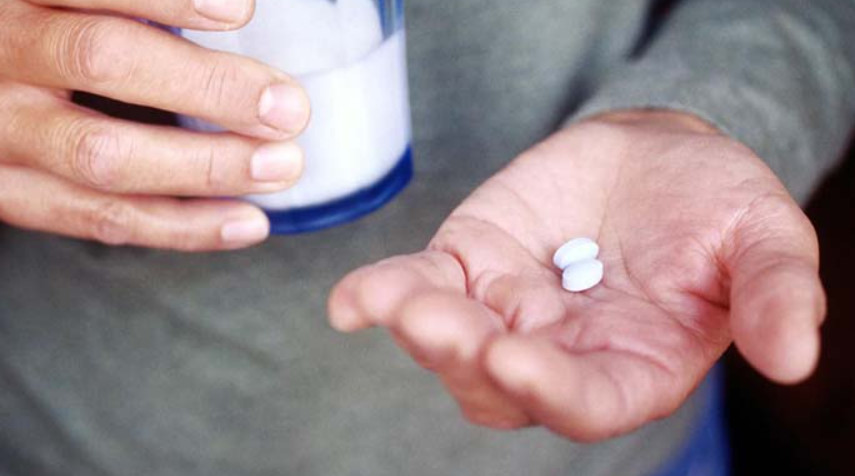Hashimoto’s thyroid – Symptoms, diagnosis and treatment
A thyroid autoimmune disorder, Hashimoto’s disease affects the thyroid gland. It is more common in women of middle age. Find out more about Hashimoto’s thyroid, its symptoms, and treatment options.
What is Hashimoto’s Thyroid?
A thyroid gland autoimmune disorder, Hashimoto’s disease affects the thyroid gland. A butterfly-shaped gland, the thyroid is located at the base of the neck and under the apple. Hormones produced by the thyroid gland regulate many bodily functions.
An autoimmune disorder is caused by the immune system attacking healthy tissues. Hashimoto’s disease is caused by the death of thyroid hormone-producing cells, which results in hypothyroidism (low thyroid hormone production).
Hashimoto’s disease can affect anyone, but it is more common in middle-aged women. The most important treatment is replacing thyroid hormone with medication.
Hashimoto’s disease is also known as chronic lymphocytic thyroiditis and chronic autoimmune thyroiditis.
Hashimoto’s symptoms
usually worsen over time with Hashimoto’s disease. Consequently, you may not notice the symptoms or notice them too late. One or more of the following symptoms can be caused by decreased thyroid hormone production:
- Fatigue and lethargy;
- Increased sensitivity to cold;
- Drowsiness;
- skin dryness;
- Constipation;
- Muscle weakness,
- Muscle cramps and pain;
- Joint pain and cramps;
- Irregular menstruation or heavy bleeding;
- Depression;
- Memory or concentration problems;
- Swelling of the thyroid (goiter);
- Puffy face;
- Fragile nails;
- hair loss;
- Enlargement of the tongue.
Do we need to see a doctor?
Hashimoto’s disease has very different symptoms from other disorders. Therefore, these symptoms may be caused by multiple diseases, and you should see a doctor as soon as possible for an accurate diagnosis.

Hashimoto’s disease is an autoimmune condition. A bacterium, virus, or foreign body attacks thyroid cells through the immune system’s antibodies. The antibodies mistakenly damage the cells, killing them.
It is not known why the immune system attacks thyroid cells. An onset of the disease may be caused by one of the following factors:
Genetic factors;
environmental factors such as infection, stress, or radiation.
Environmental and genetic factors occurring simultaneously.
Hashimoto’s disease is caused by these factors:
Gender: Women are more likely to suffer from Hashimoto’s disease.
Age: Hashimoto’s disease can strike anyone at any age, but it is more common in middle age.
Other autoimmune diseases: People with rheumatoid arthritis, type 1 diabetes, or lupus are more likely to develop Hashimoto’s disease.
Genetics and family history: If other members of your family have thyroid disorders or other autoimmune diseases, you may be at risk for Hashimoto’s.
Pregnancy: Changes in immune function during pregnancy can lead to Hashimoto’s disease.
Excess iodine: Too much iodine in the diet can lead to Hashimoto’s disease.
Exposure to radiation: People who are exposed to radiation are more likely to develop Hashimoto’s.
Thyroid hormone is essential for many bodily functions. In the absence of treatment, Hashimoto’s disease and hypothyroidism can cause many complications, the most important of which are listed below.
1. Goiter
refers to an enlarged thyroid gland. When thyroid hormone production is reduced due to Hashimoto’s disease, the pituitary gland signals the thyroid to produce more hormone. This cycle may lead to goiter. This is not a problem, but a large goiter can alter a person’s appearance and interfere with swallowing or breathing.
2. Heart problems
In addition to poor heart function, hyperthyroidism can lead to enlarged hearts and irregular heartbeats. Moreover, it can increase low-density lipoprotein (LDL) cholesterol, which is a major cause of cardiovascular disease and heart failure.

3. Mental health problems
The severity of depression or other mental health disorders may increase over time in Hashimoto’s disease.
4. Sexual dysfunction and reproduction
Hyperthyroidism in women can result in decreased libido, inability to ovulate, irregular bleeding, and excessive menstruation. Hypothyroid men may experience decreased libido, erectile dysfunction, and reduced sperm count.
5. Pregnancy problems
During pregnancy, hypothyroidism may increase the risk of miscarriage or premature birth. Untreated hypothyroidism increases the risk of mental retardation, autism, speech delay and other developmental disorders in babies.
6. Myxedema
Long-term, severe and untreated hypothyroidism is the cause of this rare and deadly disease. Drowsiness is followed by lethargy and excessive anesthesia. Cold, sedatives, infection, or stress can cause mixed edema.
Diagnosis of Hashimoto’s disease
Hashimoto’s disease can be caused by a variety of diseases. After a physical exam and medical history, your doctor may recommend a thyroid function test if you have any of these symptoms.
Thyroid function test
Your doctor may order a blood test to determine if hypothyroidism is causing your symptoms, which may include:
Tests for thyroid stimulating hormone (TSH): Thyroid stimulating hormone (TSH) is produced by the pituitary gland. The pituitary gland increases thyroid hormone production when thyroid hormone levels are low by sending TSH to the thyroid. High blood levels of TSH indicate hypothyroidism.
Tests for T-4: Thyroxine (T-4) is the main thyroid hormone. Low levels of T-4 in the blood indicate thyroid problems.
Antibody tests
reveal a number of causes of hypothyroidism. Your doctor will order an antibody test if hypothyroidism is the cause of Hashimoto’s disease.
Antibodies are used to identify foreign pathogens that need to be destroyed by other components of the immune system. An autoimmune disorder occurs when the immune system produces antibodies that attack healthy cells or proteins.
In Hashimoto’s disease, the immune system produces antibodies against thyroid peroxidase (TPO), a protein vital to the production of thyroid hormone. Most people with Hashimoto’s disease have TPO antibodies in their blood. Hashimoto’s disease antibodies may also need to be tested.
Hashimoto’s treatment:
The majority of people with Hashimoto’s disease take medication to treat hypothyroidism. You may not need treatment if you have mild hypothyroidism, but you should regularly test your thyroid hormone levels with a TSH test.
1. Hormone replacement therapy with T-4.
Levothyroxine is used to treat Hashimoto’s hypothyroidism. Synthetic hormone acts like the thyroid hormone T-4.
Hashimoto’s treatments are aimed at restoring and maintaining adequate levels of the hormone T-4 and improving hypothyroid symptoms. You will need this treatment for the rest of your life if you have Hashimoto’s disease.
Dose monitoring:
The dosage of levothyroxine depends on your age, weight, current thyroid production, other conditions, and other factors. A few weeks later, your doctor will usually check your TSH level again and adjust the dose if necessary.
Following the determination of the most appropriate dose, you will continue to take the drug every day. Monitor your TSH levels once a year or whenever your doctor changes your dose.
Levothyroxine tablets are usually taken before breakfast in the morning. Talk to your doctor if you have any questions about when or how to take the pill. You should also ask what to do if you forget.
2. T-3 hormone replacement therapy
In the body, T-4 is converted to triiodothyronine (T-3), another thyroid hormone. The T-4 replacement hormone also converts to T-3, and for most people, T-4 replacement therapy also results in adequate T-3 production.
If you need more control over your symptoms, your doctor may prescribe synthetic T-3 (Cytomel) or a combination of synthetic T-4 and T-3. T-3 replacement can cause rapid heart rate, insomnia, and anxiety. This treatment may be prescribed for a trial period of 3 to 6 months.
Hashimoto’s thyroid diet for patients taking medication
Levothyroxine absorption may be affected by certain medications, supplements, and foods. Take levothyroxine at least four hours before. Ask your doctor if you should take any of the following:
Soy products;
Fiber foods;
Iron supplements including iron-containing multivitamins;
Cholestyramine, a drug that lowers blood cholesterol.
Aluminum hydroxide in some antacids;
Sucralfate, a wound (skin disease);
Calcium supplements.
Does your family have this disease? Many people could benefit from your experience coping with this disease and its complications. Share it with us.
hashimoto’s thyroiditis symptoms
hashimoto disease symptoms
hashimoto thyroid disease
hashimoto’s thyroiditis treatment
hashimoto’s hypothyroidism


